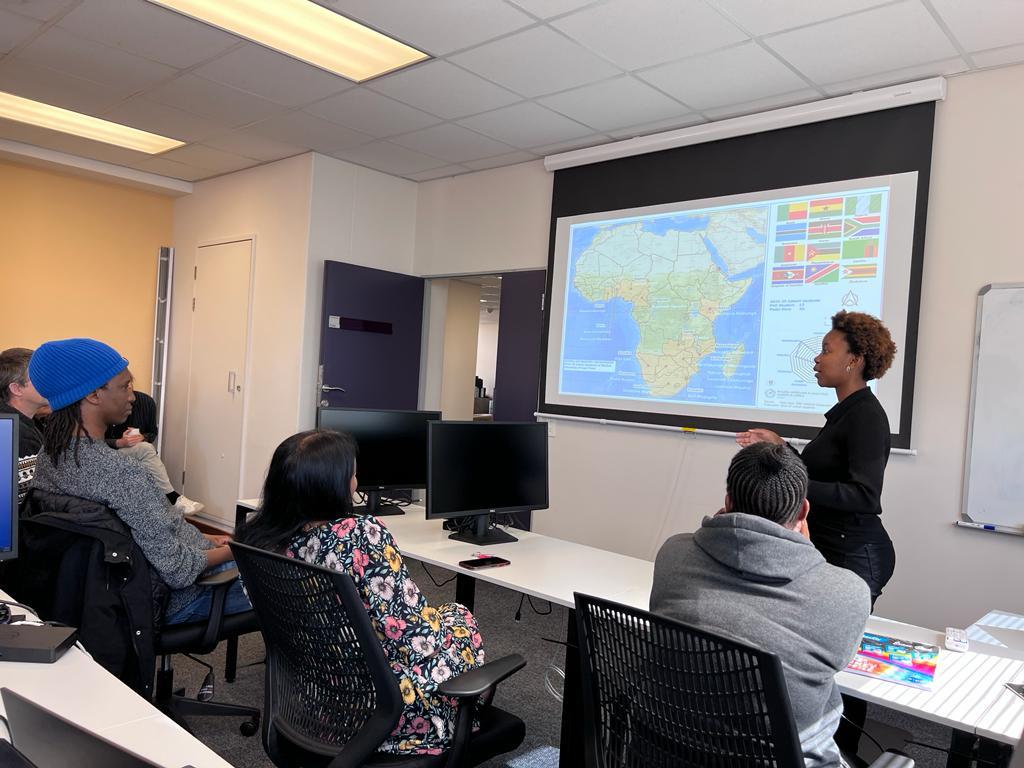MASHA remembers World Malaria Day

On the 25th of April 2023, the Malaria Modelling & Analytics: Leaders in Africa (MMALA) programme commemorated World Malaria Day with MMALA PhD students, post doctorate fellows, Department of Statistical Sciences Exco, colleagues from the Modelling and Simulation Hub, Africa (MASHA), Climate System Analysis Group (CSAG) and Faculty of Science. In the virtual audience the group was joined by collaborators of MASHA: Malaria Elimination Eight Initiative (E8), Clinton Health Access Initiative (CHAI), and the South African Medical Research Council (SAMRC).
Programme Director, Professor Sheetal Silal, took the opportunity to orientate attendees around MASHA’s work and new space allocation in the in the PD Hahn Building, a testament of the unit’s growth and expansion. Amongst other operational research in syphilis, COVID-19 and Hepatitis A; MASHA provides mathematical modelling support for malaria elimination to facilitate the decision making of National Malaria Control Programmes (NMCPs), particularly in Low and Middle-Income Countries.
Prof. Silal remarked on investment cases for South Africa and countries in the Guyana Shield, for which MASHA conducted the mathematical modelling necessary to support the mobilisation of financial resources for malaria elimination within the respective countries. This involves looking at the level of malaria in each country to determine the path to elimination and assess the costs with the aim of mobilising and advocating for funds to implement policy towards achieving malaria elimination. This speaks towards MASHA’s efforts to develop policy-relevant models and utilizing epidemiology as a tool for decision-making.
MMALA PhD candidates provided context on malaria in sub–Saharan Africa, and highlighted gaps between existing policies and their implementation in the region. The candidates represent a diverse group of countries: Ghana, Benin, Nigeria, Cameroon, Namibia, Botswana, South Africa, Zambia, Zimbabwe, Kenya, eSwatini and Mozambique.
Despite varying backgrounds in molecular biology, statistics, economics, demography, geography, medicine, chemistry, and mathematics; the candidates aim to partake in projects to model varying challenges that their specific countries are experiencing in the fight against malaria. The projects span across cross-border collaboration, insecticide and treatment resistance, at-risk populations, vector control and climate change, with anticipated impacts on the effectiveness of NMCPs and decision-making.
